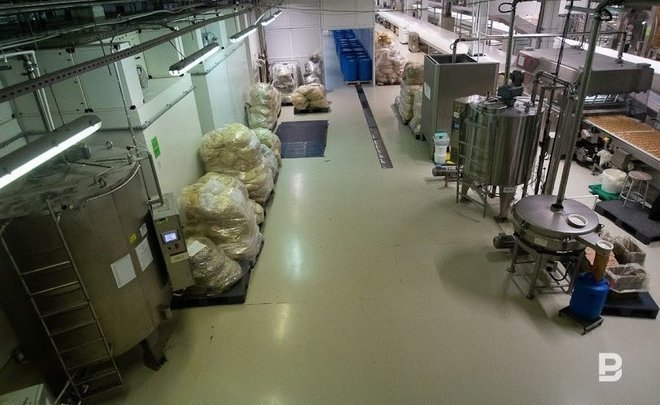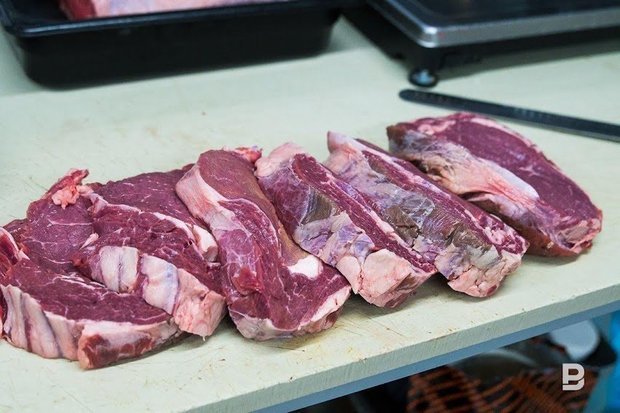'The pandemic has destroyed supply chains and disrupted the measured way of life of production'
Will it be possible to stop the rise in prices for food and medicines in Russia?

Throughout the year 2021, despite all the government's attempts to contain the increase in prices for basic necessities, the increase in food prices in many categories has outstripped the average annual inflation. Similar dynamics have been demonstrated by drug prices. For example, cereal producers warned retailers about an increase in prices for buckwheat, oatmeal and legumes by 10-20% in November. Earlier, the Ministry of Agriculture has already stated that food producers are restraining prices at the expense of their own profits. It's a similar story with medicines — the cost of some drugs has doubled in the first half of the year, although the average price increase is 7,6%. Analysts and market experts on the air of the Public News Service gave their forecasts for the fourth quarter of 2021. Whether one should expect a price reduction — read in the material of Realnoe Vremya.
It will not be possible to freeze prices
The attempt to restrain price growth through administrative regulation is an exceptionally short-term tool. According to Vladlen Maksimov, the president of the Small Format Trade Association, administrative measures will play against the consumer in the long term:
“There is some attempt to administer prices, to find out the wholesale price in stores. The problem is not in trade, trade only transmits the prices offered by the manufacturer or importer. The most common is the offer at fixed prices, which was for butter and sugar. The problem of administrative regulation is the emergence of two prices — market and administrative. The supplier strives to release as little goods as possible at the administrative price and send as much as possible to the free market, small businesses do not participate in these price agreements. It's difficult to keep it for a long time. As soon as we abandon this scheme, prices soar, making up for all these months when there was regulation.”
Vladlen Maksimov is confident that the current situation is the result of the large-scale global supply crisis related to the coronavirus pandemic:
“The pandemic has destroyed supply chains and disrupted the measured way of life of production. People worked so hard, produced, but then it turned out that there was nowhere to sell it, because nothing works, they can't just sell it. Production halted, then it was somehow launched. This has led to that some commodity groups rose in price at times, there are examples of that dozens of times. Seasonal fluctuations are also added here. And also the global conjuncture, when prices on the world market jumped. If the price is high on the world market, it is profitable to sell there. It can be administratively regulated, but only for a short period.
“We are trying to chop off one hand with the other”
Speaking about the upcoming non-working days, Vladlen Maksimov expressed the opinion that they will have an impact only if they last longer than currently planned. Retail facilities will be under attack, and together with their reduction and reduced competition, prices may become even higher:
“I don't think that the non-working week is tied to prices and something will change. In the long term, if it is not 10 days, but a month or two, it is fraught with the closure of retail facilities. But retail facilities are already closing sometimes without any pandemic. In many regions, the development of trade is artificially restrained, and the development of trade is the development of production, the very import substitution that we talk about so much, which bears fruit provided there are sales markets. We try to chop off one hand with the other, sometimes.”
As measures that could help in this situation, Vladlen Maksimov highlights the abolition of some prohibitions, which could today contribute to an increase in the number of products on local markets, and at the same time, lower prices.
“Meat has become more expensive, but large companies lobbied for a ban on domestic slaughter a few years ago. . These small slaughterhouses provided a certain mass of goods. It was forbidden. Now people need to take a cow or several chickens in some cases for 200-400 kilometres. Of course, no one will. Either all this goes somewhere illegal, or people refuse to do it at all. The fewer such solutions there are, the better the price story will be," he says.

Drug prices are rising because of... videos from pseudo experts
Consumers also note an increase in prices for medicines. The executive director of the Russian Association of Pharmacy Chains, Nelly Ignatyeva, attributes it to the crisis in the world market, with an increase in seasonal demand, and even with videos from pseudo-experts:
“We are in a global economy, the demand for medicines has grown simultaneously for the same medicines all over the world. At the same time, we have only two countries that produce the substances. Interruptions may be with supplies, interruptions may be associated with excessive demand on a groundless basis. During this period of the pandemic, we noted the following: if an authoritative specialist gives information on what needs to be done, there is a degree of trust in our patients. But there is also a degree of trust in those who are not specialists. Who made incomprehensible videos that are not scientifically justified in any way, they appear the media, the Internet, social networks, and the demand is rising.”
According to Nelly Ignatyeva, pharmacies are only the final link in the chain, and they can only influence pricing indirectly. Some cases require the intervention of the Ministry of Healthcare in pricing at the level of the drug manufacturer:
“Medicines have a concept — seasonal demand. It's okay, it's true. When the demand for medicines increases, and now there is the pandemic, there is a worldwide demand for the same medicines. In the methodological schemes for the treatment of COVID-19, drugs are periodically changed. At the level of the entire distribution chain, imagine, even in local production, the drug is made from a foreign substance. It has become in demand all over the world. And medicines are already coming at different prices. If the cost of raw materials has grown so much that the manufacturer is no longer able to make a drug, then the Ministry of Healthcare should re-register the price. This is quite logical and reasonable, the main thing is to leave the drug in circulation.”
Expanding the range and increasing competition would help ease the situation with rising prices.
“Our task is to ensure the development of competition among manufacturers. In order not to have several dominant manufacturing companies, but through the development of more manufacturers with exactly one active ingredient with different trade names, this should contribute to normal pricing," Nelly Ignatyeva is sure. “Patients' solvency is decreasing. We cannot afford a growth in trade markups. In the current situation, it would be quite reasonable to consider the possibility of some expansion of the pharmacy range to maintain working assets. We have a limited assortment. We can't even sell all water in pharmacy organisations.”
Russians with their salaries adapting to European prices
Member of the Presidium of the Stolypin Club, economist Vladislav Zhukovsky is shocked by the current level of inflation. He is even more surprised by the forecasts of officials:
“What is happening with inflation is beyond good and evil, in principle. We see that for the ninth week in a row, weekly inflation has been rewriting the maximum in annual terms since 2015 — the beginning of 2016. Inflation has already exceeded 7,9%, food prices are already growing at double-digit rates, even officially more than 10,3%, but our officials radiate optimism, they say that it's okay, we need to be patient for a year. They are optimistic that inflation will fade to 4,5% in 2022. This, of course, is absolutely unbelievable.
The economist is convinced that no price reduction is expected until the end of the year, and inflation will continue to rise, and it will be higher than the official data observed by consumers:
“It is obvious that prices and inflation have reached the maximum level at the end of this year. According to Rosstat, cabbage is getting more expensive by more than 82%, potatoes — by almost 57%, onions — about 40%, chicken — 29%, eggs — 25%, red meat and fish — about 15-20%. The problem here is not only that we do not produce any high-tech goods, medical devices, we cannot produce open-ground vegetables, which is why in August our carrots have more than doubled in price at the moment. Inflation is a big problem, not only food has risen in price. Prices for metal structures have increased almost 2,5-3 times, for wood, for building materials, the growth is already 2,5 times, which is why prices are now jumping in the construction industry, budgets are struggling, construction sites have increased in price by 30%. I think by the end of the year we will reach inflation above 8,5-9%, food — above 12-13%, according to official data. The inflation observed by consumers, this is an evaluative judgment, is already approaching 15%.”
Vladislav Zhukovsky is sure that the measures taken by the state to reduce the inflation rate will be ineffective, and Russians risk getting into a catastrophic situation:
“Everyone understands that there will be no inflation of 4%, but the main budget of the country is being adopted based on such macroeconomic adjustments. It is clear that it is already at this stage absolutely impossible, it needs to be rewritten from scratch. Raising the key rate by the Central Bank, using monetary methods to combat non-monetary inflation. In our country, the price increase is not caused by that the population has more money, the solvency has increased. According to Rosstat, real incomes of the population have been falling since 2014. There is a huge bubble in global markets, prices for raw materials, metals, fertilisers are updating historical records. Manufacturers do not understand why selling in the domestic market cheaper than it is possible to sell on the world market. Russians with their salaries are adapting to European prices.